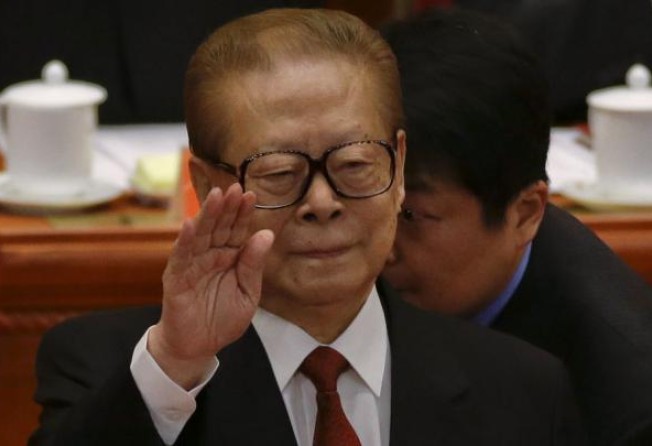
Retired life comes easy for China's former leaders
A few still flex political muscle, but others are happy to pursue the arts, write books or travel

"Every man should confine himself to his own duties", the Chinese saying goes, and when state leaders retire they often vow to refrain from interfering in the nation's politics and seek more time to pursue personal interests.

Former president Jiang Zemin, though never a man to shy away from publicity, appeared for a long time to be in the former camp.
When he retired 10 years ago he said he was a "carefree person" because he was relieved of all official duties, according to a report by Southern Weekend.
Jiang returned to Shanghai, where he served as a mayor in 1985, after retirement, and toured the country.
Shortly after his retirement, he visited the Bailin Temple, a Zen Buddhist temple in Hebei province that has a history of more than 1,700 years, and vowed to visit at least one religious venue every year.
In 2010, he went to Wuxi, visiting the memorial hall of Gu Yuxiu, a renowned educator and artist, and the old home of Qu Qiubai, a late leader of the Communist Party. He also went to Nanjing and Yangzhou that year, hosting a banquet for Singaporean Minister Mentor Lee Kuan Yew.
The former president is also well known for his appreciation of Western opera. On June 6, 2010, he watched La Traviata in the capital with Beijing party chief Liu Qi and former vice- premier Li Lanqing, dismissing rumours that he was suffering from ill health.
But while Jiang stayed out of the limelight for several years, of late he has shown renewed appetite for politics. He has garnered much attention in state media in the run-up to the party congress - showing his continued power to shape the country's future.
In October, he went to a concert in Beijing with Li and former vice-president Zeng Qinghong, both of whom are his protégés, and wrote a calligraphy couplet for his former school. Li lauded Jiang's ability to recite the melody and lyrics of songs they sang in their youth, the People's Daily reported on October 31.
Li, now 80, also sought an ordinary life after quitting politics in 2002. A report in March by a Guangxi government news portal said Li tried to bargain over the price of his groceries for Lunar New Year, and applied for a job in a small restaurant, but the owner had identified him.
Like Jiang, the former vice-premier spends most of his time on the arts. He learned signet engraving at 71, and gave a sample of his work to South Korean President Lee Myung-bak.
In addition to making signets, Li spent eight years compiling a book that introduces the history of European music and the lives of 50 European classical musicians. He got up as early as 4am each day when writing it. "I just wrote a little book that was aimed at promoting music," he said.
Former premier Li Peng, 84, who stepped down in 2003, has written several books detailing his thoughts on various topics, including the controversial Three Gorges Dam Project and his role as a top lawmaker. He thrust himself into the public eye last month, though, by donating 3 million yuan (HK$3.7 million), proceeds from his books, to a scholarship for poor university students in Yanan , Shaanxi .
Li's successor, Zhu Rongji, who once said he was one of the busiest people in China when he was in office, has firmly avoided meeting officials after stepping down in 2003. Friends and relatives wanted him to return to his home in Hunan after stepping down, but he refused because he did not want officials to use his name to promote tourism.
"I have a rich post-retirement life," he said. "I love Peking opera. I can both sing and play Beijing fiddle. Through learning from good teachers and practicing hard, my Beijing fiddle skills are much better."
Zhu has been interested in Peking opera and the fiddle since he was young, influenced by his uncle and teachers. Since retiring, he frequently practices the instrument with his wife, Lao An.